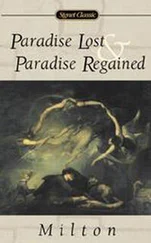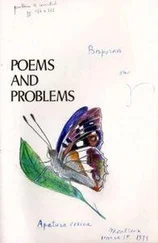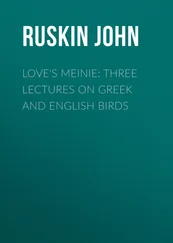With those, who feel my power, that pow'r attest!
And in thy anguish be my sway confest!
I vanquish'd Phoebus, though returning vain
From his new triumph o'er the Python slain,
And, when he thinks on Daphne, [76] She fled from Apollo, and was transformed into a laurel.
even He
Will yield the prize of archery to me.
A dart less true the Parthian horseman [77] The Roman Crassus was defeated in 53 B.C. by the Parthian cavalry when they fired backwards with devastating effect. The Cydonians were also famed for their skill in archery.
sped,
Behind him kill'd, and conquer'd as he fled,
Less true th'expert Cydonian, and less true
The youth, whose shaft his latent Procris slew. [78] Cephalus, who shot his wife Procris by mistake.
Vanquish'd by me see huge Orion bend,
By me Alcides, [79] Hercules.
and Alcides's friend. [80] Telemon.
At me should Jove himself a bolt design,
His bosom first should bleed transfix'd by mine.
But all thy doubts this shaft will best explain,
Nor shall it teach thee with a trivial pain,
Thy Muse, vain youth! shall not thy peace ensure,
Nor Phoebus' serpent yield thy wound a cure. [81] Esculapius, who came to Rome in the form of a snake.
He spoke, and, waving a bright shaft in air,
Sought the warm bosom of the Cyprian fair.
That thus a child should bluster in my ear
Provok'd my laughter more than mov'd my fear.
I shun'd not, therefore, public haunts, but stray'd
Careless in city, or suburban shade,
And passing and repassing nymphs that mov'd
With grace divine, beheld where'er I rov'd.
Bright shone the vernal day, with double blaze,
As beauty gave new force to Phoebus' rays.
By no grave scruples check'd I freely eyed
The dang'rous show, rash youth my only guide,
And many a look of many a Fair unknown
Met full, unable to control my own.
But one I mark'd (then peace forsook my breast)
One—Oh how far superior to the rest!
What lovely features! Such the Cyprian Queen
Herself might wish, and Juno wish her mien.
The very nymph was she, whom when I dar'd
His arrows, Love had even then prepar'd.
Nor was himself remote, nor unsupplied
With torch well–trimm'd and quiver at his side;
Now to her lips he clung, her eye–lids now,
Then settled on her cheeks or on her brow.
And with a thousand wounds from ev'ry part
Pierced and transpierced my undefended heart.
A fever, new to me, of fierce desire
Now seiz'd my soul, and I was all on fire,
But she, the while, whom only I adore,
Was gone, and vanish'd to appear no more.
In silent sadness I pursue my way,
I pause, I turn, proceed, yet wish to stay,
And while I follow her in thought, bemoan
With tears my soul's delight so quickly flown.
When Jove had hurl'd him to the Lemnian coast [82] Vulcan (Hephaestus) was cast down from Olympus to the isle of Lemnos.
So Vulcan sorrow'd for Olympus lost,
And so Oeclides, sinking into night,
From the deep gulph look'd up to distant light. [83] One of the Argonauts. He was swallowed up by the sea.
Wretch that I am, what hopes for me remain
Who cannot cease to love, yet love in vain?
Oh could I once, once more, behold the Fair,
Speak to her, tell her of the pangs I bear,
Perhaps she is not adamant, would show
Perhaps some pity at my tale of woe.
Oh inauspicious flame—'tis mine to prove
A matchless instance of disastrous love.
Ah spare me, gentle Pow'r!—If such thou be
Let not thy deeds, and nature disagree.
Now I revere thy fires, thy bow, thy darts:
Now own thee sov'reign of all human hearts.
Spare me, and I will worship at no shrine
With vow and sacrifice, save only thine.
Remove! no—grant me still this raging woe!
Sweet is the wretchedness, that lovers know:
But pierce hereafter (should I chance to see
One destined mine) at once both her and me.
― ― [84] A later retraction by Milton. The line appears in the original to separate it from what came before it.
Such were the trophies, that in earlier days,
By vanity seduced I toil'd to raise,
Studious yet indolent, and urg'd by youth,
That worst of teachers, from the ways of Truth;
Till learning taught me, in his shady bow'r,
To quit love's servile yoke, and spurn his pow'r.
Then, on a sudden, the fierce flame supprest,
A frost continual settled on my breast,
Whence Cupid fears his flames extinct to see,
And Venus dreads a Diomede [85] Diomedes wounded Venus (Aphrodite) at Troy. See Homer (Il. v, 335–343)
in me.
On the Gunpowder Plot. [86] The Poems on the subject of the Gunpowder Treason (This includes "On the Fifth of November" below.) I have not translated, both because the matter of them is unpleasant, and because they are written with an asperity, which, however it might be warranted in Milton's day, would be extremely unseasonable now.—W.C.
Cum simul in regem nuper satrapasque Britannos
Ausus es infandum perfide Fauxe nefas,
Fallor? an & mitis voluisti ex parte videri,
Et pensare mala cum pietate scelus;
Scilicet hos alti missurus ad atria caeli,
Sulphureo curru flammivolisque rotis.
Qualiter ille feris caput inviolabile Parcis
Liquit Jordanios turbine raptus agros.
Another on the Same.
Siccine tentasti caelo donasse Jacobum
Quae septemgemino Bellua monte lates?
Ni meliora tuum poterit dare munera numen,
Parce precor donis insidiosa tuis.
Ille quidem sine te consortia serus adivit
Astra, nec inferni pulveris usus ope.
Sic potius foedus in caelum pelle cucullos,
Et quot habet brutos Roma profana Deos,
Namque hac aut alia quemque adjuveris arte,
Crede mihi, caeli vix bene scandet iter.
Another on the Same.
Purgatorem animae derisit Jacobus ignem,
Et sine quo superum non adeunda domus.
Frenduit hoc trina monstrum Latiale corona
Movit & horrificum cornua dena minax.
Et nec inultus ait temnes mea sacra Britanne,
Supplicium spreta relligione dabis.
Et si stelligeras unquam penetraveris arces,
Non nisi per flammas triste patebit iter.
O quam funesto cecinisti proxima vero,
Verbaque ponderibus vix caritura suis!
Nam prope Tartareo sublime rotatus ab igni
Ibat ad aethereas umbra perusta plagas.
Another on the Same.
Quem modo Roma suis devoverat impia diris,
Et Styge damnarat Taenarioque sinu,
Hunc vice mutata jam tollere gestit ad astra,
Et cupit ad superos evehere usque Deos.
On the Inventor of Gunpowder.
Praise in old time the sage Prometheus won,
Who stole ethereal radiance from the sun;
But greater he, whose bold invention strove
To emulate the fiery bolts of Jove.
To Leonora, [87] Leonora Baroni, celebrated Neapolitan singer. Milton heard her perform at the palace of Cardinal Barberini in 1638.
Singing in Rome. [88] I have translated only two of the three poetical compliments addressed to Leonora, as they appear to me far superior to what I have omitted.—W.C.
Angelus unicuique suus (sic credite gentes)
Obtigit aethereis ales ab ordinibus.
Quid mirum? Leonora tibi si gloria major,
Nam tua praesentem vox sonat ipsa Deum.
Читать дальше












